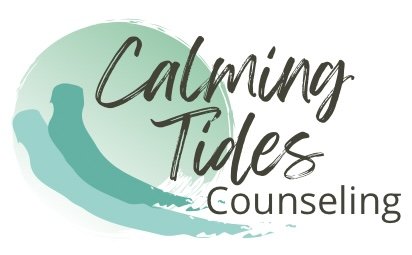Eating Disorder Therapy
Online & in-person counseling in Winter Park, FL
-
Types of Eating Disorders
-
Common ED Symptoms
-
ED Focused Therapy
-
Benefits of ED Therapy
What is Eating Disorder therapy?
Eating disorder therapy is a specialized form of treatment that addresses the underlying factors contributing to disordered eating behaviors. Through individualized counseling sessions, individuals explore the emotional, cognitive, and behavioral aspects of their eating disorder. Therapy for eating disorders emphasizes nutritional education, body image exploration, and the development of healthy coping mechanisms to promote sustainable recovery and improved quality of life.
Types of Eating Disorders
Anorexia Nervosa
Anorexia is a serious eating disorder characterized by extreme food restriction due to an intense fear of gaining weight. Individuals with anorexia often have a distorted body image and strive for an abnormally low body weight, leading to significant physical and emotional health concerns
Binge Eating Disorder
Binge eating disorder is recognized by recurrent episodes of consuming unusually large amounts of food within a discrete period, often accompanied by feelings of distress or lack of control. Unlike other eating disorders, individuals with binge eating disorder do not regularly use compensatory behaviors, such as purging or excessive exercise, after binge episodes. This can lead to changes in weight, emotional distress, and a persistent cycle of overeating, affecting overall health and quality of life
Bulimia Nervosa
Bulimia nervosa is characterized by recurrent episodes of binge eating, followed by behaviors aimed at compensating for the binge, such as self-induced vomiting, misuse of laxatives, or excessive exercise. Individuals with bulimia often have a persistent preoccupation with body weight and shape, leading to a cycle of secretive bingeing and purging behaviors.
Eating Disorder Symptoms
Anorexia Nervosa
-
Limiting food intake
Only eating certain food groups.
Only eating at certain times during the day
Taking Small bites
Throwing away food
-
Severe weight loss to obtain a certain look that is never enough.
Impacts physical health
Loss of menstrual cycle in females (amenorrhea)
-
Distorted beliefs of weight gain
Influences body checking
-
Distorted view of weight and body
Causes comparison to others
Difficulty looking at self and body
Impacts choice in clothes; often wear baggy or excessively tight clothes
Negative self talk
-
Constantly thinking about food and next meal/snack
Obsession with cooking/baking
Counts calories
Chooses “healthy” options
Dieting
Water Loading
Binge Eating Disorder
-
Consuming a significantly large amount of food within a relatively short period.
Feel a loss of control over their eating behaviors.
May occur secretly
Eating beyond the point of feeling comfortably full
-
Unable to stop binge behaviors
Emotional eating
Disconnected/Dissociation
Strong urges
-
Eating more quickly than most
Not tasting the food
-
Eating even when the body isn’t needing to
Eating past the point of fullness
Causing physical discomfort and even pain
-
Experiencing shame & guilt after a binge
Causes the Binge/Restrict Cycle
Eats alone due to embarrassment
Bulimia Nervosa
-
Consuming a significantly large amount of food within a relatively short period.
Feel a loss of control over their eating behaviors.
May occur secretly
Eating beyond the point of feeling comfortably full
-
Self-induced vomiting
Misuse of laxatives, diuretics, or other medications
Fasting
Excessive exercise.
-
Unable to stop binge behaviors
Emotional eating
Disconnected/Dissociation
Strong urges
-
Dental erosion and cavities caused by frequent exposure to stomach acid
Swelling of the salivary glands
Acid reflux disorder and other gastrointestinal issues
Dehydration and electrolyte imbalances
Calluses or scars on the knuckles or hands from self-induced vomiting
Abnormal bowel function, including constipation or diarrhea, due to laxative misuse
And many more
-
Unexplained weight fluctuations, typically within a normal or slightly above or below normal weight range.
Eating Disorder Focused Therapy
Collaborative Care
Collaborative care in eating disorder therapy emphasizes a multidisciplinary approach, bringing together a team of healthcare professionals, including therapists, nutritionists, physicians, and sometimes psychiatrists. This collaborative effort ensures comprehensive and holistic treatment tailored to address the physical, emotional, and nutritional aspects of the disorder.
Eye Movement Desensitization & Reprocessing (EMDR)
Maybe you’re wondering ‘what’s the best therapy for eating disorder recovery?’ And fortunately, there are some really great ones out there — EMDR being one of them! EMDR helps process and cope with traumatic memories by using techniques that activate parts of the brain where the negative beliefs & memories are stored. This allows any negative beliefs related to the body, self-worth, & food to be stored properly in the brain so that they aren’t impacting how you see yourself and the world around you. Research has shown that EMDR therapy supports your brain's natural healing process, making it easier to deal with distressing experiences like eating in public, trying on new clothes, going to the beach, & any other experience that the ED has been holding you back from.
Benefits of Eating Disorder Therapy
Embracing this therapeutic journey unlocks a myriad of benefits, including gaining invaluable self-awareness, cultivating healthier relationships with food and body image, and developing essential coping skills. Empowering individuals to challenge harmful beliefs, navigate emotional triggers, and establish sustainable recovery strategies. Beyond the tangible tools and strategies, eating disorder therapy fosters a sense of community, validation, and understanding, reminding individuals they're not alone on their path to healing.
